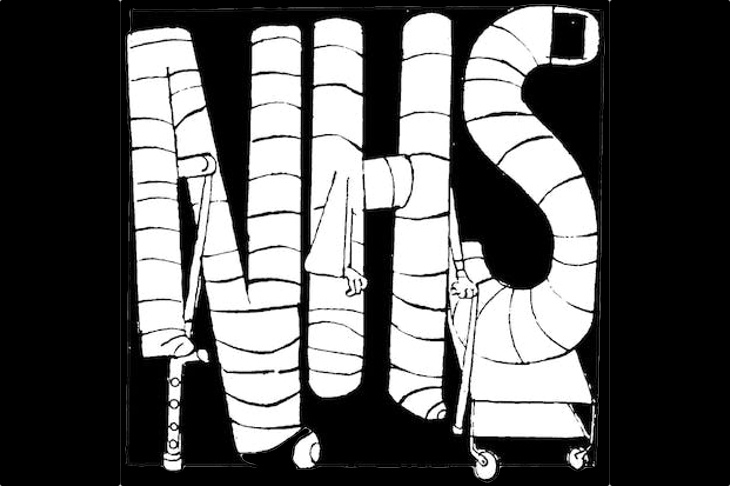Rationing did not end in the 1950s. The largest-scale rationing programme is still in existence: our beloved National Health Service. Its austere regime is part of our national life. We no longer queue for bread or sugar, but we most certainly do to see the doctor. We no longer wait in line at the butcher’s, but we do in A&E departments and on interminable lists for appointments and procedures. There are no books or coupons, but rationing it remains. Indeed, the government has announced it is withholding elective operations and routine appointments this month. Rationing by any other name would smell as sweet.
And, like our drawn-out post-war rationing, it is ours alone. Nowhere else in Europe must one wait until one’s knee is arthritic to the point of incapacity before a surgeon will set eyes on it. Are your unsightly and painful varicose veins making you miserable? Terribly sorry— come back if you develop an infection or an ulcer. You’re worried you have cancer? Would you mind waiting two weeks to have ten minutes of your GP’s time? This would be unthinkable to our European neighbours. Good thing we have a stiff upper lip.
You might say that rationing is necessary in a system like the NHS, and you’d be right. Some are bound miss out. And you might say that more funding is the solution. But this misses the point. Rationing and austerity are not a Nasty Party conspiracy to dismantle the NHS. The problem is the NHS itself. It is an unwieldy bureaucracy incapable of responding to demand, and has all its patients and workers at its mercy.
The Secretary of State for Health has the unenviable job of divvying up the pie across this vast system. That a government minister has the power to prevent thousands of operations from going ahead should tell us something is wrong. Patients are rightly up in arms, as are the earnest junior doctors, still reeling from the (mostly favourable) contract imposed upon them. Knowing nothing but the NHS has blinded them to the nature of the problem. Don’t they see that it is the very fact of the NHS which gives Mr Hunt the power to treat them en masse, cancel thousands of operations at the stroke of a pen, and do countless other things against which they rail? Mr Hunt is the popular scapegoat, but he has inherited a system which gives him and others great power to give, but also to take away.
Moreover, though we fawn over the NHS, in the ways that matter most (e.g. cancer mortality), it is giving us poor outcomes. On the international stage, we are holding the wooden spoon. The NHS is not fit for purpose. But the solution to its problems lies outside of itself. It must look to other nations for inspiration, and cease the cycle of cuts and funding drives which treat only the symptoms of its malady. Its top-down approach is unresponsive to demand, makes beggars of all its users, and rations services in a way which would be intolerable to anyone else. And, yet, it is still taboo to talk seriously about the NHS. It is high time that politicians braved the subject. Serious alternatives to the NHS need to be put on the agenda.
Toni Saad is a final year medical student at Cardiff University






Comments